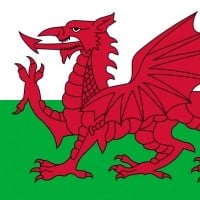Top Ten Groups Most Likely to Have Crossed the Atlantic Before Christopher Columbus
Christopher Columbus is probably the most overrated person in history. He was known for “being the first man to cross the Atlantic” in 1492, and a wise and generous soul. In reality, he was a cruel man who abused his crew mates (on his ship), claimed all the credit, and killed or persecuted the indigenous people he met there. It turns out that he actually wasn’t even the first to cross the Atlantic, which is obvious because how else would North America have been populated when he got there. But who are these people who got there before him? Here are the top ten groups with evidence that they were there before him.
This is perfectly proven, while only a few of the others have absolutely sound proof. It's 100% certain that Vikings did reach North America way before Columbus did. A viking saga (a story kind of thing) told how Leif Erikson reached a land after long travel that he called "Vinland". Archeological evidence in Newfoundland, Canada, or as they called it, "Vinland", shows that they did actually cross the Ocean. They seemingly sailed on Longboats from Western Sweden and curved slightly down before reaching Newfoundland. If you live in Boston you should know the statue of Leif Erikson, and if you haven't but have read the book series Magnus Chase you'll know it as well.

Similarities in stone tools and DNA evidence show that French Cavemen likely crossed the Atlantic over 15000 years ago! It seems that they travelled in Canoes along the edge of the Arctic Ice Sheet. While it's very likely that they made it across, there's also a theory that makes sense saying that the Indigenous people in North America are descendants of the French, due to similarities in DNA, appearance, and tools (for example the canoes). If you think about it, Columbus made it across in 1492. So the Prehistoric French made across 14 492 years before he did, which is pretty crazy considering that he only arrived a few hundred years ago.

This is one of the most interesting ones, and though it's not 100% sure it's definitely very likely. A clearly Roman Cermanic was found near Mexico City in Mexico, and Roman coins were also unearthed in Indiana and Ohio. Some people speculate that the coins were brought much later, in the past few centuries, but studies have shown that it is, in fact, quite old. Those Romans Certainly got around. I wonder if it's possible that, assuming the Romans did arrive, that they spread the stories of their Gods which caused the Indigenous people to that area to believe in their own gods.
2000 year old stones dug up at Bat Creek, Tennessee, have writing on it, but not just any writing. The writing was almost definitely Hebrew. This leads many people to believe that Ancient Jews reached North America thousands of years ago. It's an unlikely theory, but how else did that stone get there? Could the writing just be a coincidence? That's even more unlikely, so Jews must have reached North America around the time of Jesus Christ. Perhaps it was Jesus himself who travelled there.

According to Welsh legend, this one probably based off of fact, because it's unlikely that this isn't true, this Welsh Prince named Prince Madoc sailed to America in 1170 (like I said, it's very likely true because of how recent it is). Once he reached America, supposedly 120 members of his crew members settled in America. There is lots of evidence to support this because one Native American Tribal Language is a slightly modified version of Welsh. It's pretty cool that 120 men were able to basically change a Tribal Language, unless you believe it's all a coincidence that the two languages are almost exactly alike. (which is possible, but there's already been too many slim "coincidences" in the debunking of theories of the Discovery of North America.
This is one of the ones with the most proof and yet it's still unclear where they came from. The bones of a man who lived 9000 years ago were unearthed in Kennewick, Washington, on the banks of Columbia River, dubbing him the "Kennewick man". More bones were found later in a similar area. No one knows where he came from, but reconstruction of his face revealed that he looked more like Modern-Day Europeans, unlike the other groups who crossed, leading us to believe this group of people was European but not one of the ones already mentioned.
In 1473, a couple decades before Columbus began his travels, a German sea captain called Didrik Pining was sent by the Danish king to lead an expedition to discover a northern route to Asia. It seems he instead reached Labrador, Canada. His story resembles Columbus quite a bit, and you may be wondering why he didn't receive credit for it. It's because Columbus reported back, where Didrik Pining, while he did reach Labrador, never messaged back. For all we know he died soon after reaching his accidental destination.
Technically, they were "Basque" fishermen, not exactly Portuguese. There was a massive codfish die-off in waters close to Europe, and these guys were the best in the world, so they made it all the way over to at least the Grand Banks in their search for codfish. They had it [codfish] for sale when nobody had it. There is a bit of evidence that Columbus knew about it too.
A Portugese Sailor, named Joao Vaz Corte-Real was given the title "Discoverer of the Land of Codfish" in 1472, one year before Didrik Pining was sent on his mission. Anyways, Newfounland is famous for its cod, and from other evidence and speculation it's quite likely that he had reached the Canadian Coast, or "The Land of the Codfish".
Apparently, English fishermen had been fishing off the coast of New England (which, if you didn't know, is the place where now the 6 states Maine, Vermont, New Hampshire, Massachusetts, Connecticut and Rhode Island reside). It's very likely that an explorer you may have heard of that we've already mentioned named Christopher Columbus had heard of the existence of North America from these fishers.
I think this is pretty much guaranteed. America was a rumored location because of Vikings and fisherman.
According to Columbus, the native Americans stated themselves that black people had come all the way from West Africa with gold and many gifts. The Mali Empire is a West African civilization and the only human civilization on record to have made an attempt to "sail past the Atlantic" before Columbus. They sailed the journey with gold and many gifts (coincidence?). It makes perfect sense that they got there way before Columbus.
Mali Empire is officially the first civilization to make an attempt to cross the Atlantic. There is a wind that blows sailors from West Africa to Brazil ; it is very likely Mali landed in America. On top of that Mali could deploy advanced ships as long as 100-200 metres and were very wide to accommodate a personnel in the 1000s. All ships were equipped with sails.
Documents from as far back as the ninth century (800s AD or CA) state that an Irish Saint named Saint Brendon crossed the Atlantic in the fifth century, on a leather boat. This may seem extremely far-fetched, but in 1977, a replica boat was built and tested, and amazingly, it proved that everything about the story was possible.
They actually did go to America before Chris here yet Chris here is the man who found it
